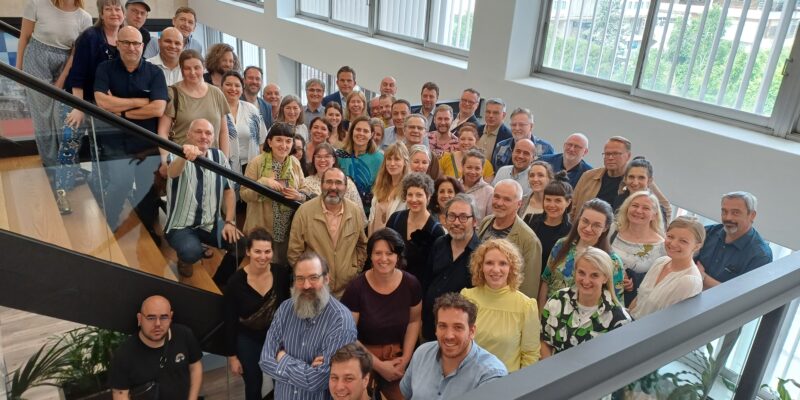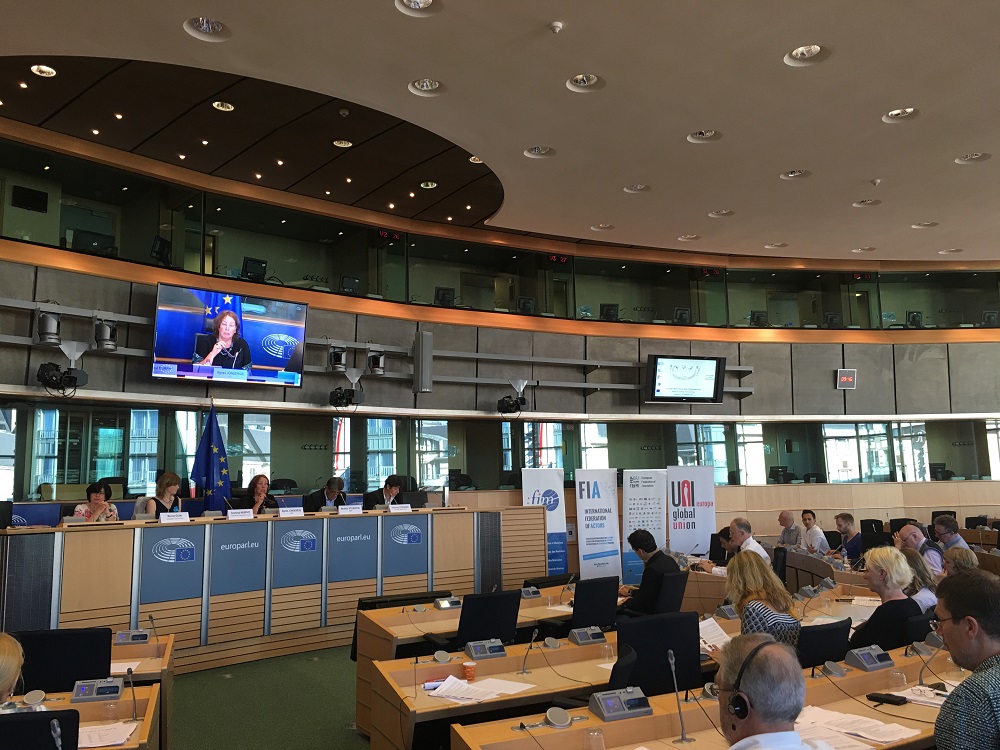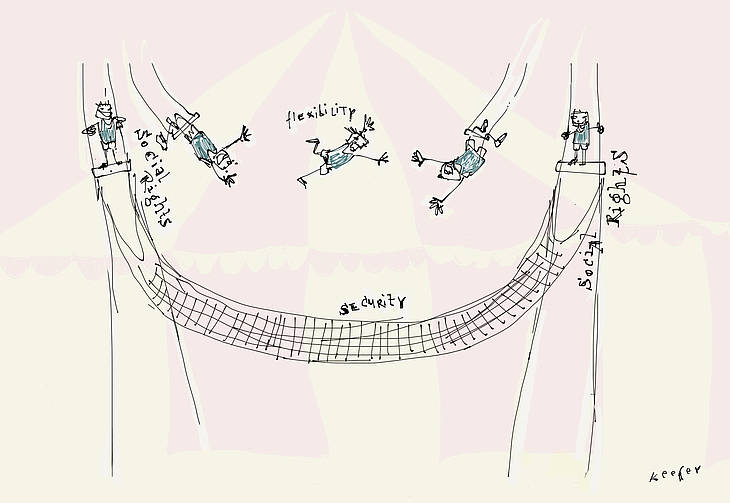The European Federation of Journalists together with International Federation of Actors (FIA), the International Federation of Musicians and UNI-MEI launched a two-year joint project (2015 & 2016) aiming to promote the rights of atypical workers in the sector and improve the capacity of trade union in servicing these members.
This project, which is funded by the European Commission, is intended to create a vital space for the project partners to engage with the challenges of atypical workers in our sector.
Across the EU’s audiovisual and live performance sectors, “atypical workers” are an increasing reality. Production and project-based working, as well as the wide range and diversity of workers involved in a given project, mean that multiple, short-term contracts and a variety of employment statuses are a common aspect of working in the sector. The concept of “atypical workers” includes workers who are not hired in a conventional way with a labour law contract, but under civil or commercial law, as well as those working on short-term contracts, whether an employment or service-provision contract.
These workers are in a precarious and volunerable situation where the presence of trade union is important to defend their rights collectively and maintain the working standards in the sector.
The project aims to:
- Gathering and sharing expertise on organising strategies of unions to reach out to atypical workers;
- Developing advocacy work regarding improved, more tailored social protection rights, improved working conditions, access to training and life-long learning and health & safety of atypical workers;
- Developing and expanding collective bargaining on behalf of atypical workers: this will certainly include a specific focus on the problems posed by competition rules in some country;
- Tailoring Services provision to atypical workers;
- Exploring the specific youth and gender dimensions of this issue;
- Fighting against bogus self-employment.
Activities
During the course of two years, four works which will focus on issues to be examined in detail and allow an exchange of experience and expertise.
The workshops are:
- Workshop 1, May 20th Amsterdam: Access to social rights for atypical workers and providing services to atypical workers
- Workshop 2, Dublin, 8 -9 September: Collective bargaining for atypical workers
- Workshop 3, Ljubljana, January (date tbc) : Fighting bogus self-employment
- Workshop 4: Italy, March (date tbc): Organising strategies of unions to reach out to atypical workers
The findings in all of these areas will be gathered in a final publication in the project handbook by the project consultant and published at the end of the project to serve as a tool and point of reference in this area. The project will conclude will a conference which will serve to highlight findings and launch any follow-up activities. This is planned for Autumn 2015. For more information, please do not hesitate to contact the secretariat.

















